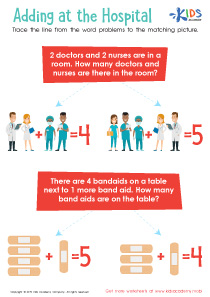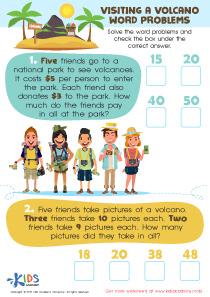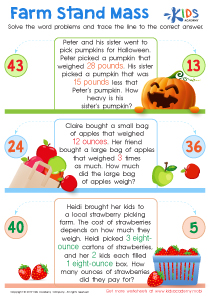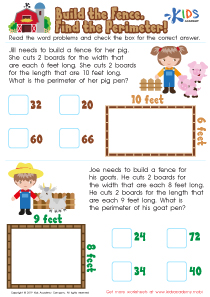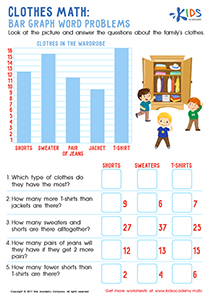Normal Two-step Word Problems Worksheets for Ages 4-5
13 filtered results
-
From - To
Introduce your young learners to the fun and engaging world of mathematics with our Normal Two-step Word Problems worksheets, perfect for children aged 4-5 years. These learning downloadable worksheets are designed to build foundational skills in a playful and interactive manner. Each worksheet challenges children to solve problems that require two sequential steps, fostering critical thinking and problem-solving abilities from an early age. With clear instructions and captivating illustrations, these worksheets make learning enjoyable and accessible. Unlock your child’s potential and watch as they explore and master new skills with confidence!


Tricky Problems Worksheet: Part 1


Enrichment -2 Step Word Problems Worksheet


Adding Flower Petals Worksheet
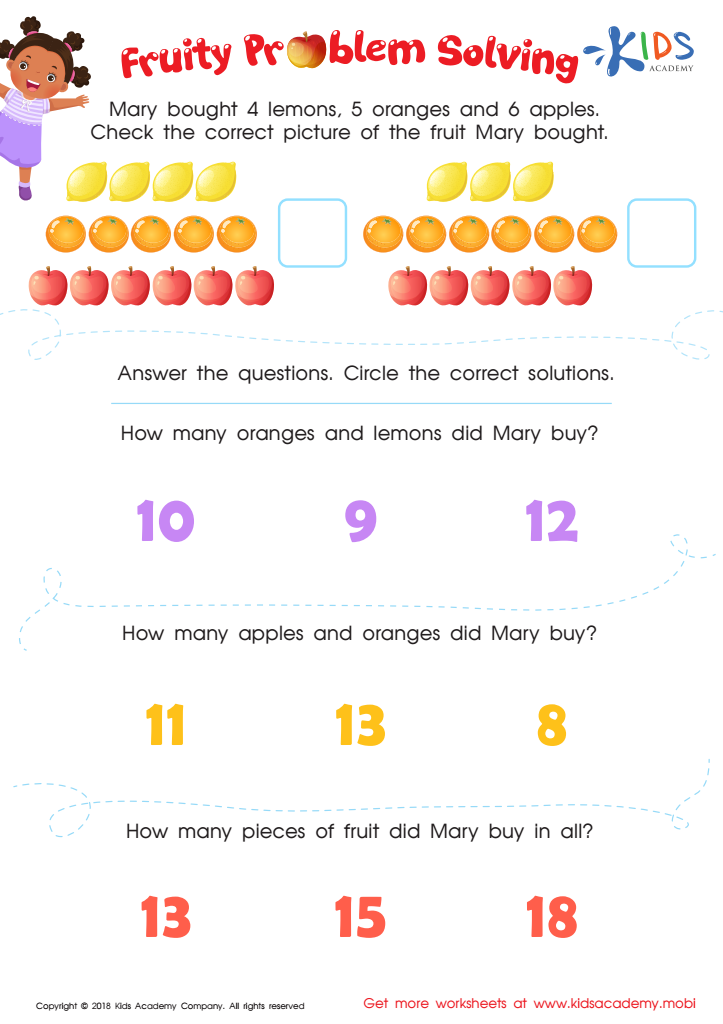

Fruity Problem Solving Worksheet
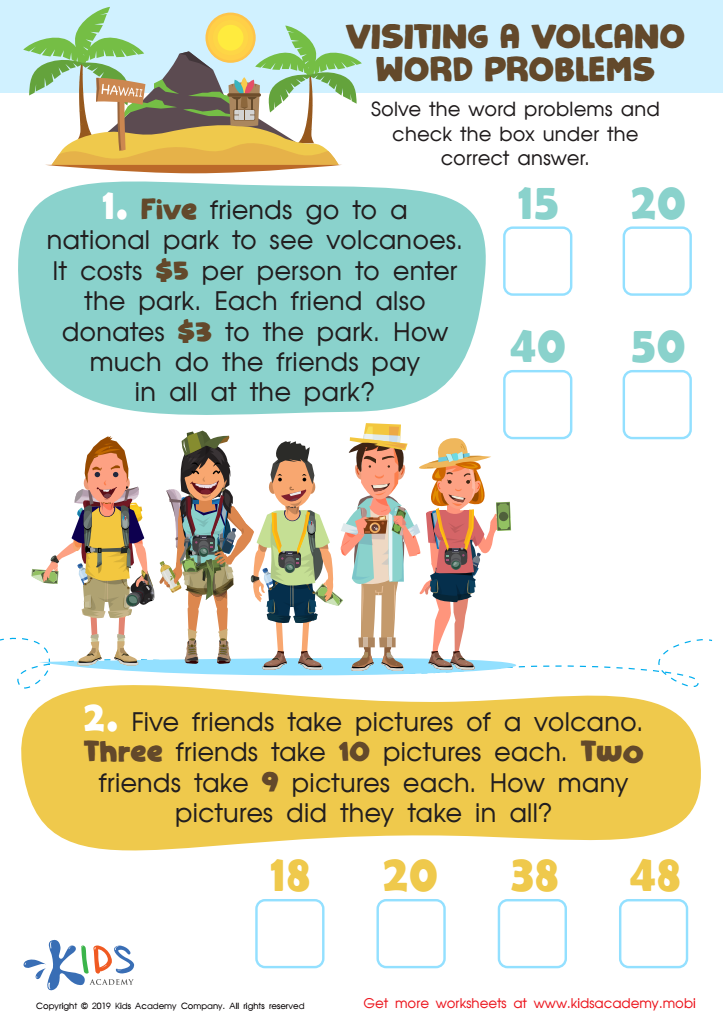

Visiting a Volcano Word Problems Worksheet
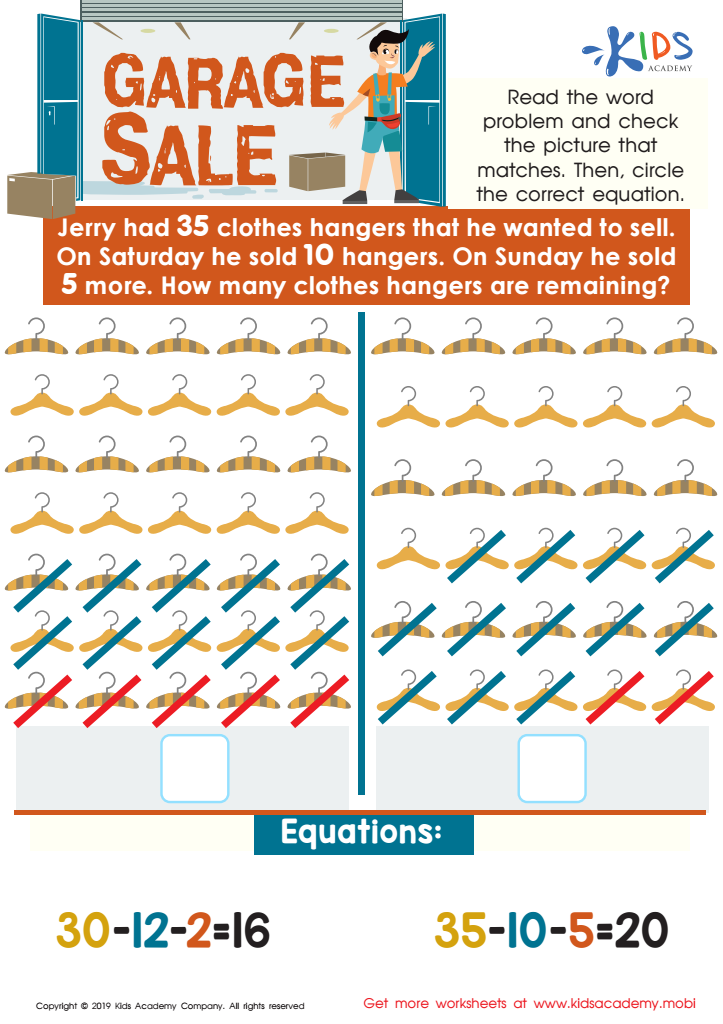

Garage Sale Worksheet


Tricky Problems Worksheet: Part 2
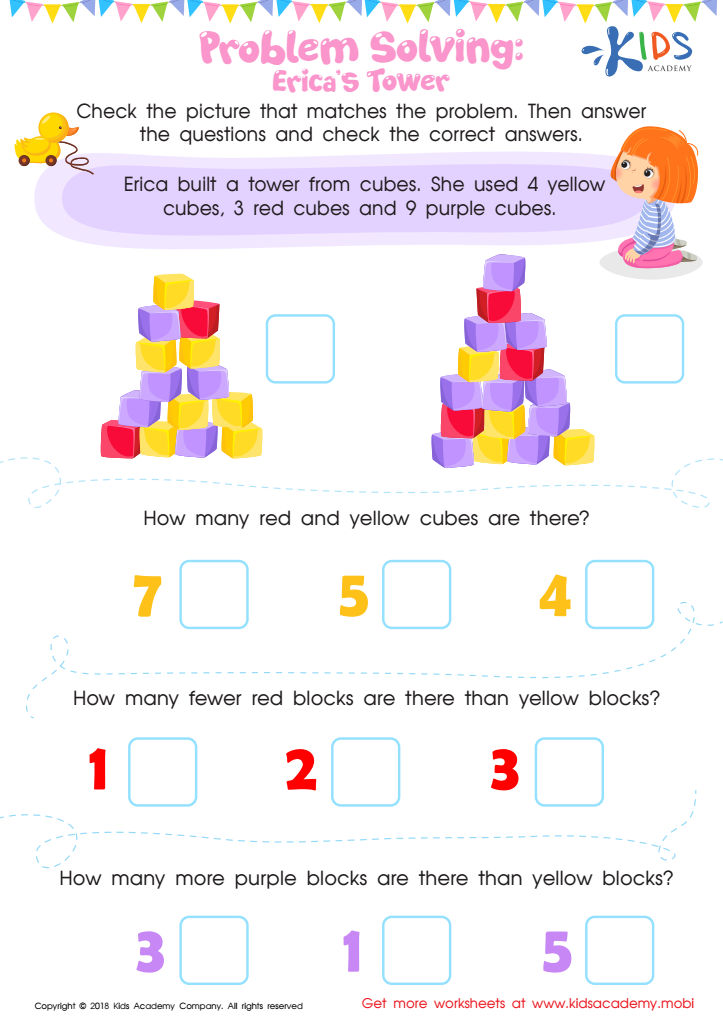

Problem Solving: Erica's Tower Worksheet
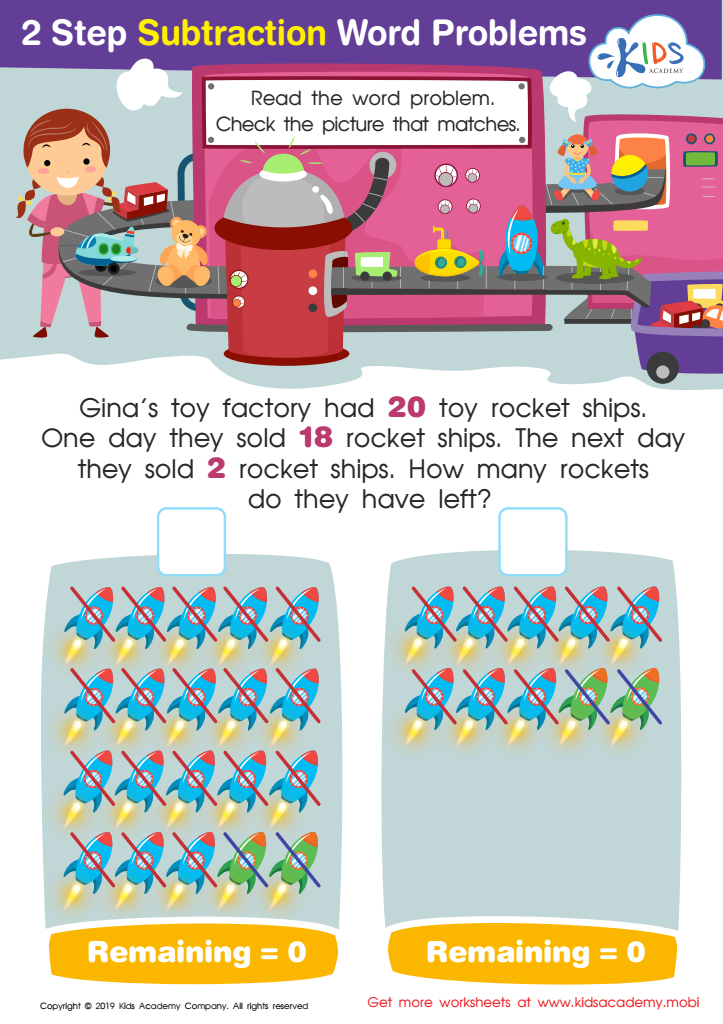

Step Subtraction Word Problems Worksheet


Solve the Problem: Trick–or–treating Worksheet


Addition and Subtraction: Word Problems Worksheet
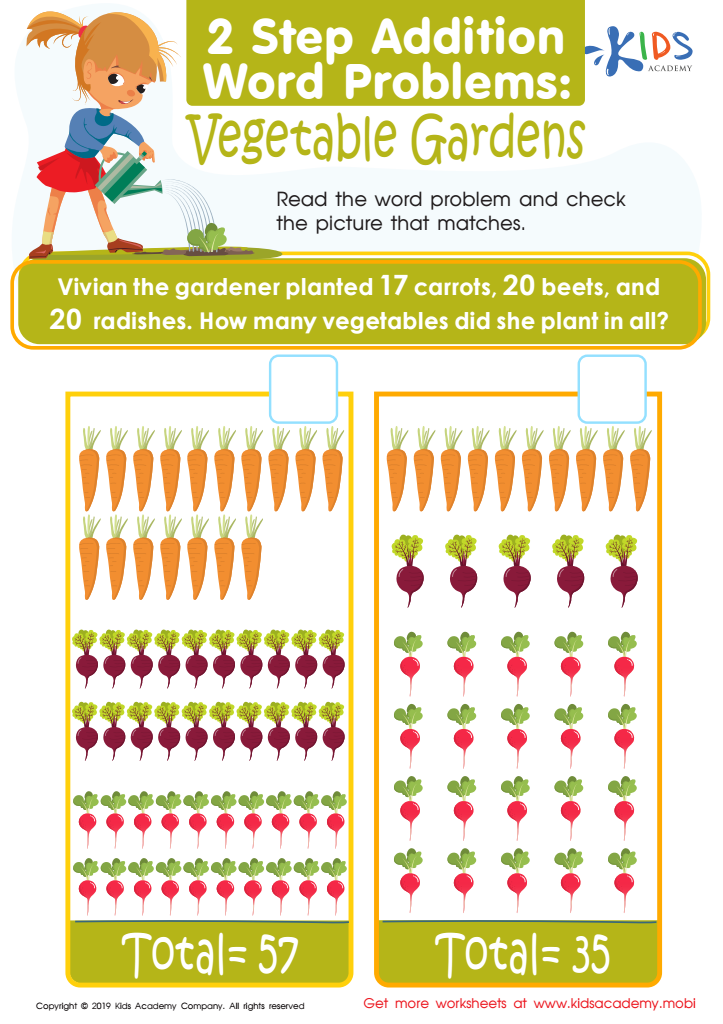

Vegetable Gardens Worksheet
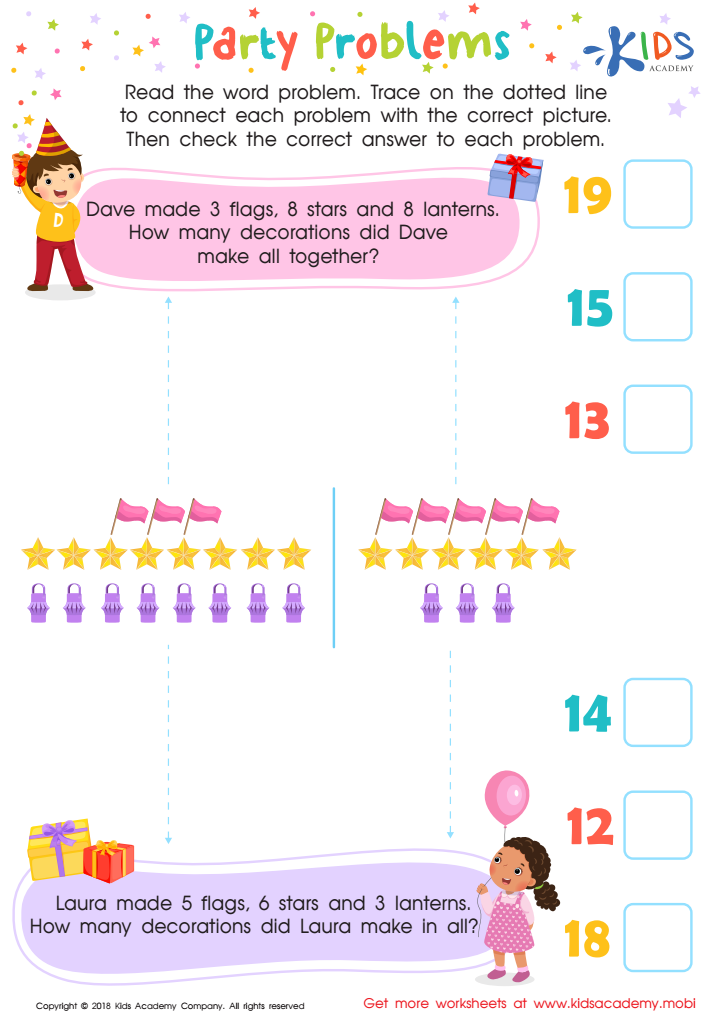

Party Problems Worksheet
Understanding the Value of Two-Step Word Problem Worksheets for Young Learners
When it comes to early childhood education, developing strong problem-solving skills is crucial. For children aged 4-5 years, two-step word problem worksheets serve as an essential tool to achieve this goal. Incorporating learning homework sheets into daily learning routines can greatly enhance young learners' capabilities to understand and solve multi-step problems, setting a strong foundation for future academic success.
Why Use Two-Step Word Problem Worksheets?
-
Enhanced Cognitive Skills: At the age of 4-5, children are at a developmental stage where they begin to understand more complex concepts and can handle tasks that require multiple steps. Two-step word problems require children to think critically and logically, improving their cognitive abilities. These worksheets encourage them to read and comprehend the problem, identify what is being asked, and determine the steps necessary to arrive at a solution.
-
Building Mathematical Foundation: Two-step word problems introduce young children to basic mathematical operations like addition and subtraction within a context that makes sense to them. This practical approach helps them see the relevance of math in everyday life. Learning homework sheets that feature these problems use scenarios relatable to a child’s world, such as playing with toys or sharing snacks, making the learning process enjoyable and meaningful.
-
Language Development: These worksheets are not just about numbers; they also involve a significant amount of reading and comprehension. Children must understand the wording of the questions, which can enhance their vocabulary and reading skills. As they discuss and explain their thought process, they also improve their verbal communication skills.
-
Persistence and Resilience: Two-step word problems can be challenging since they require a sequence of thoughts and actions. By engaging with these problems regularly through learning homework sheets, children learn the value of persistence and develop resilience. They understand that it might take effort and maybe a few attempts to reach the correct answer, which is a valuable life lesson.
-
Preparation for Future Academic Demands: Early exposure to structured problem-solving sets children up for success as they advance in their educational journey. Skills learned from solving two-step word problems are foundational to handling more complex math and science subjects later in their schooling. This early practice also aids in smoothing the transition to formal schooling, where children will encounter a variety of problem-solving tasks.
Implementing Learning Homework Sheets in Daily Routines
To integrate two-step word problem worksheets effectively into the daily learning routine of a child 4-5 year old, it is important to maintain a balanced approach that combines fun with learning. Here are a few strategies to ensure that these educational tools are used effectively:
-
Interactive Sessions: Turn worksheet time into interactive sessions by working together with your child. This not only makes learning more engaging but also allows you to provide immediate feedback and assistance where needed. Encourage your child to talk through their thought process, which can help them develop their reasoning and verbal skills.
-
Incorporate Real-Life Examples: To make the problems more relatable and understandable, use real-life scenarios that your child encounters daily. For instance, if a worksheet involves dividing items, use toys or snacks to physically demonstrate the division. This tactile experience can help solidify the concepts.
-
Routine Creation: Children thrive with routine. Incorporate learning homework sheets into a set schedule, perhaps as a fun activity before dinner or after playtime. Consistency helps children understand that learning is a regular and important part of their day.
-
Positive Reinforcement: Always use positive reinforcement to encourage and motivate your child. Celebrate their successes, no matter how small, and provide supportive guidance when they face difficulties. This approach fosters an environment where children feel safe to experiment, make mistakes, and learn from them.
-
Gradual Complexity Increase: Start with simpler problems and gradually introduce more complex ones as your child's confidence and skills develop. This incremental approach helps prevent feelings of overwhelm and keeps the learning process enjoyable.
-
Review and Reflect: After completing worksheets, spend some time reviewing the work done. Discuss what was easy or challenging, and how similar challenges might be approached differently in the future. Reflection helps children internalize what they have learned and apply it to different situations.
Conclusion
Two-step word problem worksheets are more than just learning tools; they are stepping stones that build essential life skills in young learners. By integrating these learning homework sheets into the educational activities of children aged 4-5, parents and educators can provide them with a robust foundation in problem-solving, mathematical reasoning, and logical thinking. These skills are instrumental not only in academic achievement but in real-world success, making such worksheets a valuable component of early childhood education. By adopting thoughtful strategies to introduce and engage children with these worksheets, we can ensure that learning remains both effective and enjoyable.
 Assign to My Students
Assign to My Students



